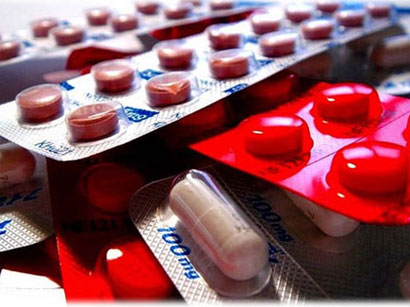Baku, Azerbaijan, Feb. 26
By Umid Niayesh - Trend:
A major U.S. pharmaceutical company, Merck Sharp & Dohme (MSD) has signed a contract for the licensed production of medicines in Iran, head of Iran's Drug Importing Union, Nasser Riahi said, ISNA news agency reported on Feb. 25.
The MSD is an American pharmaceutical company and is one of the largest pharmaceutical companies in the world. Its headquarters is currently located in the state of New Jersey. The company's revenues reportedly stood at $48 billion in 2011. It was established in 1891 as the United States subsidiary of the German company now known as Merck KGaA.
Remarking on the new hopeful condition for Iran's pharmaceutical industry, Riahi said that "Iran has a high capacity for investment, in particular in the pharmaceutical industry."
He forecasted that in the near future a number of companies from around the world will enter the Iran's market.
He also went on to say that a German company has expressed interest to purchase share of Shiraz Serum Company and to participation in the production without unveiling the German company's name.
"The U.S. MSD which is one of the largest pharmaceutical companies in the world wants to manufacture its products under license in Iran," he said, adding that in order to gain the trust of the Iranian partner, the U.S. company has reduced its product prices by 30 to 40 percent.
Riahi remarked that major Swiss-based multinational drug maker Novartis has started production in Iran and signed a contract. A Japanese company also has signed an agreement for the production of medicines in Iran, he added.
He remarked that the MSD is the first U.S. drug company which has signed a cooperation contract with Iran since the 1979 Islamic revolution.
International sanctions against Iran have hindered trade of medicines, as pharmaceutical firms have been refusing to sell Iran drugs due to difficulties in receiving payments. This has led to shortages of some vital medicine in the country.
Iran's Health Ministry official Hossein Ayati said previously that some 97 percent of Iran's required medicine is currently produced domestically.
"About 50 percent of necessary raw material for producing the medicine is imported," he added.
Iran imported 16,000 tons of drugs worth $1.468 billion, during the previous Iranian calendar year (which ended on March 20).
Drug imports ranked tenth on the list of Iran's imported goods last year. Iran's drug import has increased by 900 percent since March 21, 1997. Meanwhile drug production in the same period increased 500 percent.
Statistics from Iran's Ministry of Health and Medical Education shows that about 89 pharmaceutical industry companies were active during 2011, while 123 companies were involved in importing drugs this year.






